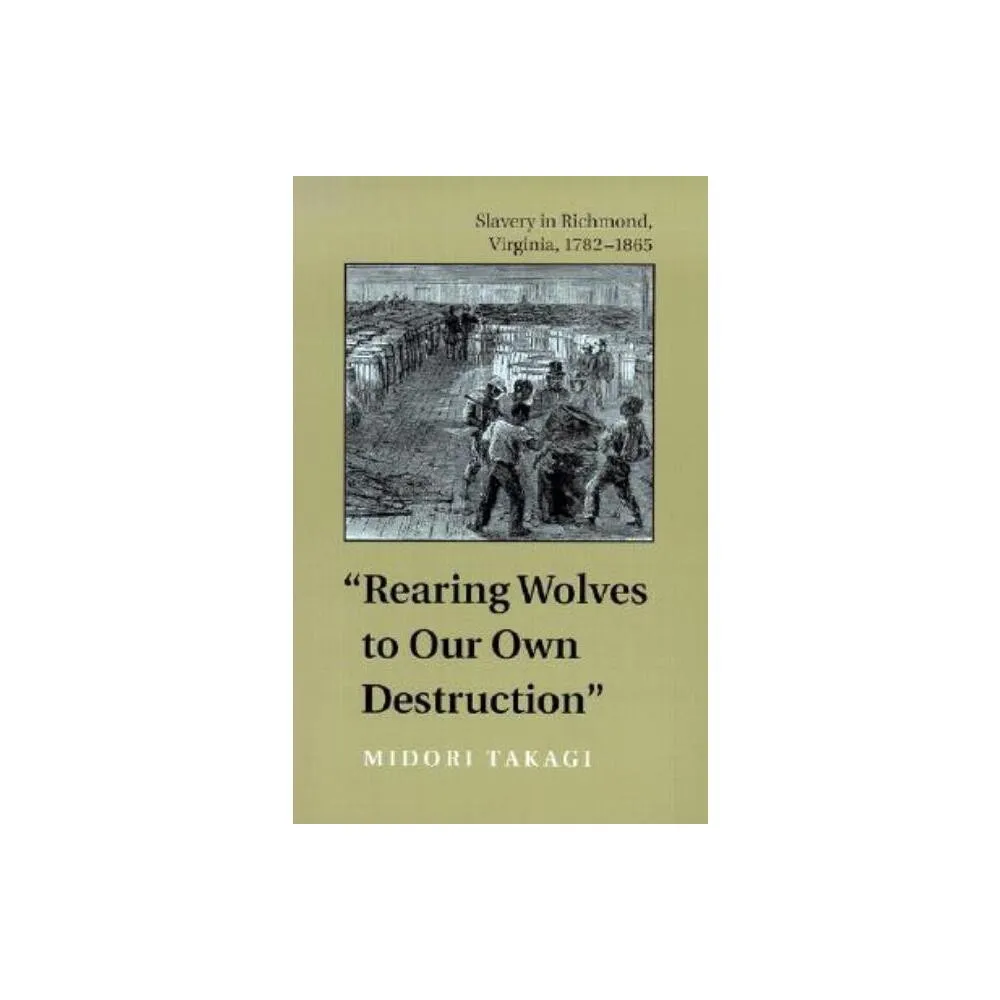Home
Rearing Wolves to Our Own Destruction - (Carter G. Woodson Institute) by Midori Takagi (Paperback)
Loading Inventory...
TARGET
Rearing Wolves to Our Own Destruction - (Carter G. Woodson Institute) by Midori Takagi (Paperback)
From University of Virginia Press
Current price: $21.99


TARGET
Rearing Wolves to Our Own Destruction - (Carter G. Woodson Institute) by Midori Takagi (Paperback)
From University of Virginia Press
Current price: $21.99
Loading Inventory...
*Product Information may vary - to confirm product availability, pricing, and additional information please contact TARGET
About the Book Rearing Wolves to Our Own Destruction offers a valuable portrait of urban slavery in an individual city that raises questions about the adaptability of slavery as an institution to an urban setting and, more importantly, the ways in which slaves were able to turn urban working conditions to their own advantage. Book Synopsis RICHMOND WAS NOT only the capital of Virginia and of the Confederacy; it was also one of the most industrialized cities south of the Mason-Dixon Line. Boasting ironworks, tobacco processing plants, and flour mills, the city by 1860 drew half of its male workforce from the local slave population. Rearing Wolves to Our Own Destruction examines this unusual urban labor system from 1782 until the end of the Civil War. Many urban bondsmen and women were hired to businesses rather than working directly for their owners. As a result, they frequently had the opportunity to negotiate their own contracts, to live alone, and to keep a portion of their wages in cash. Working conditions in industrial Richmond enabled African-American men and women to build a community organized around family networks, black churches, segregated neighborhoods, secret societies, and aid organizations. Through these institutions, Takagi demonstrates, slaves were able to educate themselves and to develop their political awareness. They also came to expect a degree of control over their labor and lives. Richmonds urban slave system offered blacks a level of economic and emotional support not usually available to plantation slaves. Rearing Wolves to Our Own Destruction offers a valuable portrait of urban slavery in an individual city that raises questions about the adaptability of slavery as an institution to an urban setting and, more importantly, the ways in which slaves were able to turn urban working conditions to their own advantage. Review Quotes A thoughtful exploration of the promises and pitfalls of urban residence and factory labor for enslaved Virginians in Richmond, and for their enslavers, between independence from the British and the defeat of the Confederacy. --Michael P. Johnson, Johns Hopkins University An outstanding addition to the literature of placing slaves at the center of slave history. -- Choice This book is an impressive piece of work. Based on solid research, it makes an important contribution to the history of Richmond, to our understanding of urban and industrial slavery, and to the broader field of slave historiography. --Charles B. Dew, Williams College About the Author Midori Takagi is Assistant Professor of History at Fairhaven College, Western Washington University.









